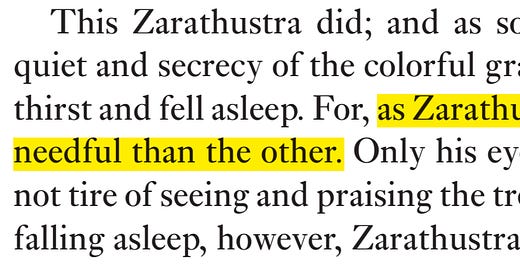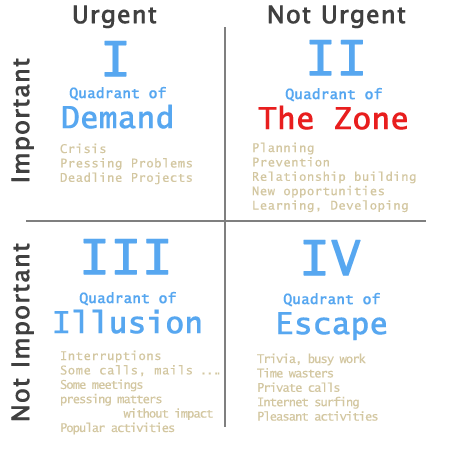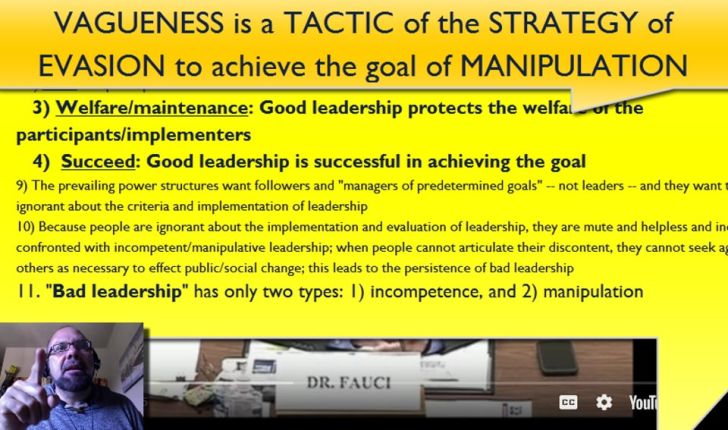Two things MOST NEEDFUL today
What is the most difficult and important task for us to accomplish?
Today I asked: What is the most difficult and important task for us to accomplish today, globally/internationally, for the benefit of humanity generally and for us individually?
Do we need a better understanding of MITOCHONDRIA—is our lack of understanding in this area holding us back on a population-wide basis?
No, not really.
Do we need a better understanding of the importance of DIET AND EXERCISE—is our lack of understanding in this area holding us back on a population-wide basis?
No—we already know enough. The problem in this area is that of implementation, not information.
By now, anyone who wants to know about these topics should know they need to 1) prioritize protein and phytochemicals/fiber, 2) minimize carbohydrates/sugars, 3) take supplements to cover the gaps and compensate partly for stress, pollution, caffeine/alcohol, etc., 4) get regular near-daily exercise for 30-60 minutes and/or of high intermittent intensity.
Everyone who wants to know about these topics already knows these things. People who want to remain ignorant or remain intentionally confused so they can avoid responsibility and action will always find an excuse to ignore information.
The biggest problems are those of 1) discipline-implementation for those who have access to the means, and 2) access to the means for people who are financially limited and can’t / can hardly afford / cannot access healthy foods and some reasonable place to exercise, etc.
Do we need a better understanding of VIRAL INFECTIONS—is our lack of understanding in this area holding us back on a population-wide basis?
Partly, yes, but I cannot say that this is the most important factor.
What is the most difficult and important task for us to accomplish today, globally/internationally, for the benefit of humanity generally and for us individually?
Some things are more important than others, and thus by definition these most important things deserve prioritization.
Individuals in acute situations always have to prioritize the needs of the moment; the problem that confronts all of us is that of living from one acute problem to the other such that we never have time to focus on what is truly important. Stephen R Covey popularized this idea many years ago in his 4-quadrant distinction between urgent / not urgent and important / not important; most activities that we engage in are urgent/timely but not important, and thus we have to discipline ourselves to focus on what is important regardless of the illusion of urgency.
Nietzsche in Zarathustra made repeated mention of the importance of what is most important —“most needful.” Ironically, the fact that he prioritizes the question without providing the answer is exactly how he achieves his goal of getting the reader to ask this question of themselves; Nietzsche’s goal was that people find their own answers rather than receive and then follow a prescribed-given and thus proscribed-limited answer for life.
What then could be “most needful” and “most important” to us now? What one or two things are “most needful” for us to advance as a society and likewise for us as individuals?
I will tell you that the problem is not that we need more information. For example, at the start of the pandemic —either at the very start or within the first few months— we already knew enough and more than enough to handle the problem safely, effectively, affordably and ethically but instead we implemented the dumbest and most expensive and worthless measures internationally from 2020-2022 and now in 2023 we are about to do it again even after the failures have been documented and acknowledged. Thus, information is not the problem. The problems were those of government overreach, censorship of experts (noting that my book Antiviral Nutrition was censored in March 2020 after having been available for the previous 6 years), coercion, and propagandistic and logistical mandating of experimental drug treatments that were all remarkably expensive-profitable and dangerous-worthless.
We don’t need more research, more money allocated and given to the drug cartels, and we don’t need more government overreach.
Likewise, everyone knows how to select a better diet and lifestyle, but we as a 70% overweight-obese society fail to act per what we know. Sure, poisoning the population with pesticides contributes to obesity and neurologic problems, but we have known of these relationships for more than 20 years; medical-government personnel and groups suppress the distribution of this information because both groups pander to the chemical-drug industry. Thus, the problem is not one of information but rather suppression, which occurs as a result of corruption, which occurs as our collective failure to enforce accountability and responsibility. The public gets what the public accepts, and the public accepts a corrupt medical and political system because the public fails to engage and enforce higher standards.
The solutions to our problems lie in
1) enactment (personal) and
2) enforcement (social).
The problems that most of us face on a personal level are those of failure of enacting what we know to be true or that which we could easily learn.
The biggest problems we face on a social level are those of failing to enforce proper behavior and accountability in our elected government and in the unelected organizations that shape our lives via their behaviors and misbehaviors.
We will never have a strong and healthy society if that same society allows its governmental and medical dictators to run amuck, do as they please, and profiteer off of all the disasters they continue to create.
The public gets what the public accepts, and the public accepts a corrupt medical and political system because the public fails to engage and enforce higher standards.
We will never have a strong and healthy society if that same society allows its governmental and medical dictators to run amuck, do as they please, and profiteer off of all the disasters they continue to create.
Leadership Knowledge Protects Society
Without education in Leadership, people cannot enact Leadership and cannot critique Leadership to protect themselves and their communities 1. The topic of leadership is notably absent from public dialogue 2. We all need to be aware of essential concepts in leadership
Healthy Sociopolitical Engagement: How people respond (successfully) to political oppression
Hopefully most people are aware of the important protests in France that have occurred this week in response to the French government’s call for mandatory vaccinations and digital/compulsory passes and tracking systems. “Sky News host Cory Bernardi says French President Emmanuel Macron announcing compulsory COVID-19 vaccinations is the first step in an …
AUDIO INTERVIEW Nutrition Against Coronavirus: UK Health Radio's Dora Walsh interviews Dr Alex Vasquez
UK Health Radio's Dora Walsh interviews Dr Alex Vasquez Original Description: Dora Walsh talks to expert Functional Medicine expert, Nutritionist, Chiropractor, Osteopath and Author, Dr Alex Vasquez about antiviral nutrition in the age of Coronavirus in March/April 2020











